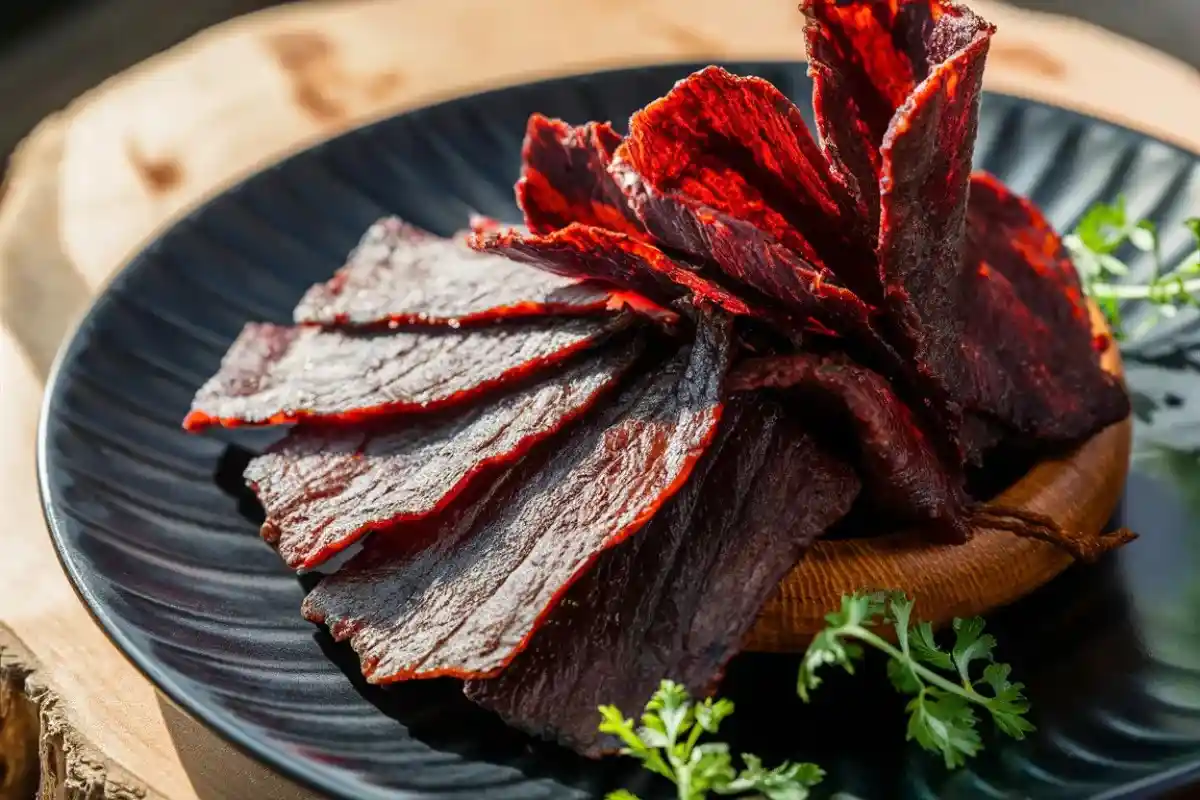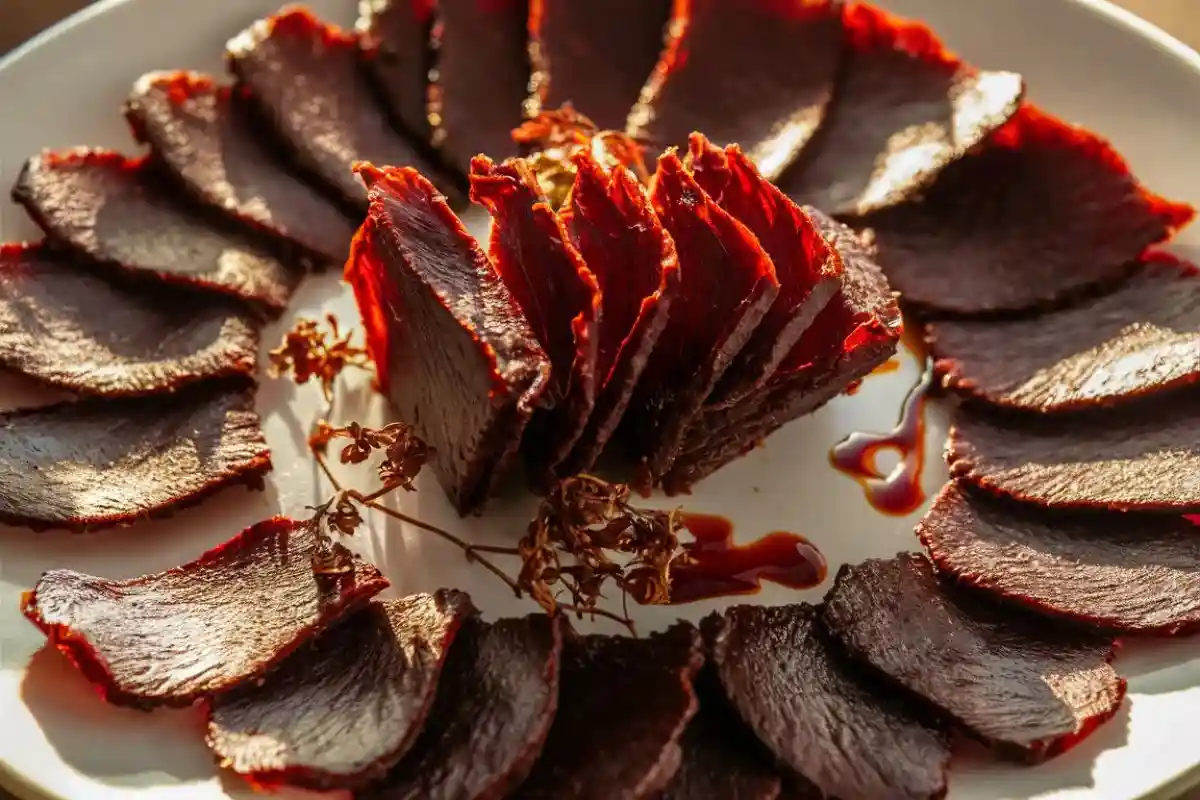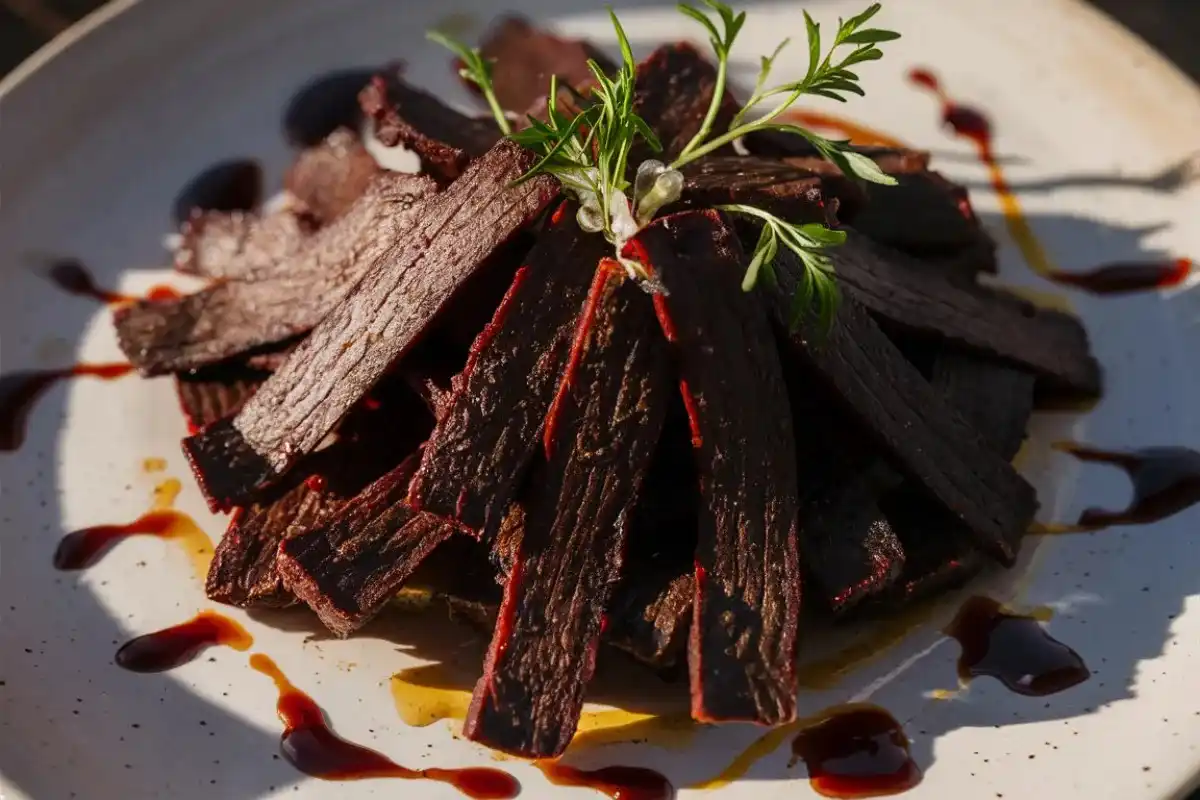Beef jerky, with its rich, savory flavor and convenient form, has been a favored snack for centuries. It’s not only tasty but also highly practical, especially for outdoor activities, hiking trips, or as a quick protein-packed snack. But if you’re making beef jerky at home or buying it in bulk, understanding its shelf life becomes crucial, particularly when you want to extend its freshness. So, how long will beef jerky last if vacuum-sealed? This article delves deep into this topic, exploring various factors affecting its longevity, storage methods, and practical tips to ensure your jerky remains fresh and enjoyable for as long as possible.
What is Vacuum Sealing and How Does it Preserve Beef Jerky?
Vacuum sealing is a packaging technique that removes air from the package before sealing it, creating a low-oxygen environment that prevents the growth of bacteria, yeast, and mold. This method is particularly effective for preserving foods that are sensitive to air exposure, such as beef jerky. By removing the air, vacuum sealing helps maintain the flavor, texture, and nutritional quality of the jerky while significantly extending its shelf life. According to the National Center for Home Food Preservation, vacuum sealing is an effective way to extend the shelf life of various foods.
Benefits of Vacuum Sealing for Beef Jerky
- Prevents Oxidation: Exposure to air causes oxidation, which can lead to rancidity, especially in foods with fat content. Vacuum sealing minimizes this risk by eliminating air, thereby reducing oxidation and helping retain the jerky’s flavor.
- Inhibits Microbial Growth: Microorganisms like bacteria and mold need oxygen to grow. Vacuum sealing reduces the available oxygen, making it harder for these microorganisms to thrive, thus extending the product’s shelf life.
- Maintains Moisture Levels: Vacuum sealing protects beef jerky from moisture, preventing it from becoming either too dry or too moist, both of which can affect quality and safety.
- Improves Storage Efficiency: Vacuum-sealed packages are compact and take up less space, making storage more efficient.
For more insights on how vacuum sealing benefits various foods, check out the National Center for Home Food Preservation.
Factors Affecting the Shelf Life of Vacuum-Sealed Beef Jerky

Several factors impact how long vacuum-sealed beef jerky will last. Understanding these factors can help you optimize storage conditions and make informed decisions about how to keep your jerky fresh.
1. Moisture Content
The moisture content of beef jerky is a critical factor in determining its shelf life. Jerky that is properly dehydrated will have a lower moisture content, making it less susceptible to microbial growth and spoilage. Vacuum-sealed jerky with a low moisture content can last significantly longer than jerky that retains more moisture.
- Low-Moisture Jerky: Jerky dried to a low moisture level (typically 15-25% moisture content) will last the longest when vacuum-sealed. This type of jerky is less chewy and more brittle, making it ideal for long-term storage.
- High-Moisture Jerky: Jerky with higher moisture content may have a shorter shelf life, even when vacuum-sealed. This jerky is softer and more tender but is more prone to microbial growth if not stored correctly.
2. Storage Temperature
Temperature plays a vital role in the shelf life of beef jerky. The cooler the storage temperature, the longer the jerky will remain fresh.
- Room Temperature: Vacuum-sealed beef jerky can last 1-6 months at room temperature, depending on the moisture content and storage conditions. Keeping it in a cool, dark place will help extend its shelf life.
- Refrigeration: Storing vacuum-sealed beef jerky in the refrigerator can extend its shelf life to up to a year. Refrigeration slows down microbial growth, further preserving the quality of the jerky.
- Freezing: For the longest possible shelf life, freeze vacuum-sealed beef jerky. Properly frozen jerky can last 1-2 years or more without significant loss of flavor or texture. Use freezer-safe vacuum bags to prevent freezer burn, and thaw the jerky in the refrigerator or at room temperature for the best results.
3. Packaging Material
The type and quality of the packaging material used in vacuum sealing also influence how long beef jerky will last.
- High-Quality Vacuum Bags: Use thick, food-grade vacuum bags that are specifically designed for long-term food storage. These bags provide an excellent barrier against air, moisture, and light, which can degrade the jerky over time.
- Sealing Method: Ensure that the vacuum sealer is working properly and that the bags are fully sealed without any air pockets. Even a small amount of air left in the bag can significantly reduce the shelf life of the jerky.
4. Initial Preparation and Ingredients
The ingredients used in the preparation of beef jerky can also impact its shelf life when vacuum-sealed.
- Salt Content: Salt acts as a natural preservative by drawing out moisture and inhibiting the growth of bacteria. Jerky with a higher salt content typically lasts longer.
- Sugars and Other Preservatives: Sugar, honey, and other natural preservatives can also extend the shelf life by creating an environment that is inhospitable to microorganisms.
- Marinades and Spices: Some marinades and spices have antibacterial properties that can help preserve the jerky. For example, ingredients like vinegar, soy sauce, and certain spices can add an extra layer of protection against spoilage.
5. Handling and Storage Practices
Proper handling and storage practices are crucial for extending the shelf life of vacuum-sealed beef jerky.
- Avoid Cross-Contamination: Always use clean utensils and surfaces when handling jerky to avoid introducing bacteria.
- Store in Cool, Dark Places: Light and heat can degrade vacuum-sealed jerky, so store it in a cool, dark place such as a pantry or cupboard.
- Label and Rotate Stock: Keep track of the date when the jerky was vacuum-sealed and consume older stock first to ensure freshness.
For more comprehensive details on storing vacuum-sealed jerky, see how to store beef jerky long-term.
Expected Shelf Life of Vacuum-Sealed Beef Jerky
The shelf life of vacuum-sealed beef jerky varies depending on whether it is commercially produced or homemade.
Commercially Made Beef Jerky
- Shelf Life: Commercially made beef jerky, when vacuum-sealed, can last up to 1 year or more. This extended shelf life is due to the controlled drying process, precise moisture content, and the use of preservatives.
- Storage Recommendations: Store in a cool, dry place away from direct sunlight. Refrigeration can further extend the shelf life, while freezing can make it last for years without noticeable changes in flavor or texture.
Homemade Beef Jerky
- Shelf Life: Homemade beef jerky typically lasts between 1 to 6 months when vacuum-sealed, depending on factors such as moisture content, preparation methods, and storage conditions. With optimal storage, this can be extended.
- Key Differences from Commercial Jerky: Unlike commercial products, homemade jerky often lacks preservatives, which can result in a shorter shelf life. However, by using proper drying techniques and vacuum sealing, homemade jerky can still be stored safely for several months.
Comparison: Homemade vs. Commercial Beef Jerky
- Commercial Jerky: Contains added preservatives and is processed under stringent conditions to achieve a low moisture content, resulting in a longer shelf life.
- Homemade Jerky: While it offers more control over ingredients and flavors, it may spoil faster due to higher moisture content and the absence of preservatives.
For additional tips on making your jerky last longer, you might find the article on how long dehydrated jerky is good for helpful.
Best Storage Practices for Vacuum-Sealed Beef Jerky

To maximize the shelf life of your vacuum-sealed beef jerky, adhere to the following storage practices:
Room Temperature Storage
- Ideal Conditions: Store in a cool, dark place such as a pantry or cupboard away from heat and light sources.
- Duration: Vacuum-sealed beef jerky can last 1-6 months at room temperature, depending on the initial moisture content and how it is stored. The drier the jerky, the longer it will last.
Refrigeration
- Why Refrigerate?: Refrigerating vacuum-sealed beef jerky can significantly extend its shelf life, particularly for homemade versions.
- Optimal Temperature: Keep the jerky at temperatures below 40°F (4°C) to slow down microbial growth and maintain quality for up to a year.
- Storage Tips: Use vacuum-sealed bags specifically designed for refrigeration to prevent moisture and odor transfer.
Freezing Beef Jerky
- Benefits of Freezing: Freezing is the best method for long-term storage of vacuum-sealed beef jerky. It halts the growth of microorganisms and prevents oxidation, keeping the jerky fresh for up to 2 years.
- Proper Freezing Techniques: Use high-quality, freezer-safe vacuum bags to prevent freezer burn. Label the bags with the date and store them in a location where they won’t be exposed to frequent temperature changes.
- Thawing Tips: Thaw the jerky in the refrigerator or at room temperature. Avoid using a microwave, as it can cause uneven heating and alter the texture of the jerky.
Signs That Your Beef Jerky Has Gone Bad
While vacuum sealing significantly extends the shelf life of beef jerky, it is still important to be vigilant about signs of spoilage. Even vacuum-sealed jerky can go bad if not stored correctly or if it was contaminated during preparation.
Visual Indicators
- Color Changes: Fresh beef jerky typically has a rich, dark color. If you notice discoloration, such as white spots or a grayish hue, it may indicate mold or bacterial growth.
- Mold Growth: Any visible mold on the jerky means it should be discarded immediately, as mold can pose serious health risks.
Texture and Smell Changes
- Texture Changes: Fresh beef jerky should be firm but not overly hard. If it becomes overly brittle, slimy, or sticky, this may be a sign of spoilage.
- Unpleasant Odor: A sour or rancid smell is a clear indicator that the jerky has gone bad and should not be consumed.
Taste Alterations
- Off Taste: If the jerky tastes off or has an unusual flavor, it is best to err on the side of caution and discard it. The taste may indicate that the jerky has begun to spoil.
For further guidance on identifying spoiled jerky, refer to how to tell if beef jerky is bad.
Safety Tips for Storing Vacuum-Sealed Beef Jerky
Proper storage and handling are key to ensuring that vacuum-sealed beef jerky remains fresh and safe to eat.
Use High-Quality Vacuum Bags
- Invest in durable, food-grade vacuum-sealing bags. These bags provide an effective barrier against air and moisture, which are the primary factors that cause spoilage.
- Make sure the bags are thick enough to prevent tears or punctures during storage.
Seal the Bags Properly
- Use a reliable vacuum sealer to ensure that all air is removed from the bag before sealing. Air pockets can reduce the shelf life of the jerky.
- Double-check the seal for any signs of leakage or incomplete sealing.
Regularly Check for Signs of Spoilage
- Periodically inspect stored jerky for any changes in color, texture, or smell. This can help you catch any signs of spoilage early before they become a health risk.
- If in doubt, it is better to discard the jerky than risk consuming spoiled food.
Proper Handling to Avoid Contamination
- Always wash your hands thoroughly before handling beef jerky to avoid introducing bacteria.
- Use clean utensils and surfaces during preparation, packaging, and storage.
Extending the Shelf Life: Advanced Tips and Tricks

If you’re looking to maximize the shelf life of your vacuum-sealed beef jerky, consider these additional tips:
Use Oxygen Absorbers
- Place an oxygen absorber inside the vacuum-sealed bag. Oxygen absorbers are small packets that contain iron powder, which reacts with oxygen and removes it from the package. This creates an oxygen-free environment that is even less conducive to microbial growth.
- Oxygen absorbers are especially useful for long-term storage, as they can further reduce the risk of spoilage.
Further Dehydration
- Dehydrating the beef jerky even more before vacuum sealing can reduce its moisture content, which enhances its shelf life. Ensure that the jerky is dried to the desired texture before packaging.
- A food dehydrator is ideal for achieving consistent drying, but an oven on a low setting can also work. For those looking to make beef jerky at home, this guide from Serious Eats offers a detailed recipe and tips.
Rotate Stock Regularly
- Practice a “first in, first out” method by consuming older jerky first and replacing it with newer stock. This ensures that your supply stays fresh and reduces waste.
- Label each batch with the date of preparation and vacuum sealing to help you keep track.
Additional Tips for Beef Jerky Lovers
- Experiment with different marinades and spices to create unique flavors for homemade jerky.
- Incorporate beef jerky into various dishes, such as salads, soups, or even pasta, for a flavorful protein boost.
- Consider using beef jerky as a topping for baked potatoes or as a garnish for scrambled eggs to add a savory crunch.
- Make your own jerky sticks or bars by grinding beef and shaping it before dehydrating and vacuum sealing.
Frequently Asked Questions: Common Questions About Vacuum-Sealed Beef Jerky
1. How Long Will Beef Jerky Last if Vacuum-Sealed at Room Temperature?
Vacuum-sealed beef jerky can last between 1 to 6 months at room temperature, depending on factors such as moisture content and storage conditions. Keeping it in a cool, dark place will help maximize its shelf life.
2. Can You Freeze Vacuum-Sealed Beef Jerky?
Yes, freezing is an excellent method to extend the shelf life of vacuum-sealed jerky. Ensure you use freezer-safe bags and avoid thawing and refreezing, as this can affect the texture and quality.
3. Does Homemade Beef Jerky Last Longer if Vacuum-Sealed?
Yes, homemade beef jerky lasts longer when vacuum-sealed, but its shelf life is generally shorter than commercial jerky due to the lack of preservatives. Vacuum sealing can help extend it to several months, especially if refrigerated or frozen.
4. How Do I Know if My Beef Jerky Has Gone Bad?
Look for changes in color, texture, smell, and taste. Any of these signs may indicate that the jerky is no longer safe to consume and should be discarded.
5. What is the Best Way to Store Vacuum-Sealed Beef Jerky?
Store vacuum-sealed beef jerky in a cool, dark place for short-term storage, refrigerate for medium-term, and freeze for long-term storage to maintain optimal freshness.
Conclusion
Beef jerky is a versatile snack that can be stored for an extended period when properly vacuum-sealed. By understanding the factors that affect its longevity such as moisture content, storage temperature, and packaging quality you can ensure that your jerky remains fresh and tasty for months or even years. Whether you prefer commercially produced or homemade jerky, adhering to the best storage practices and regularly checking for signs of spoilage will help you enjoy this delicious treat to its fullest.
For more information on storage techniques and tips, you may want to explore articles such as how to store beef jerky long-term and other related topics.

